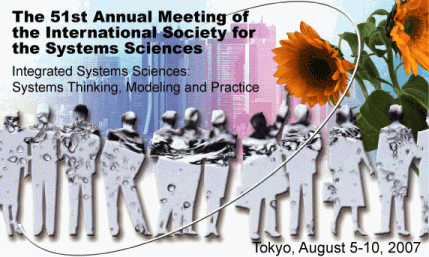Un Axiological Concept Of Organizational Efficiency: A Measure
Abstract
Projected paper: UN AXIOLOGICAL CONCEPT OF ORGANIZATIONAL EFFICIENCY: A MEASURE By Francisco Parra-Luna Universidad Complutense de Madrid (Spain) Parraluna@cps.ucm.es ABSTRACT The concept of “efficiency” presented in this special issue should, therefore, entail a series of theoretical dimensions of overall importance, whose operational definition should be highly demanding in terms of competence-related content. What this means is that companies labelled as “efficient” under this approach (i.e., those with an overall index greater than one, as discussed below) will be able to ascertain that they in fact are presently and will continue to be efficient in the future, and that such efficiency is measured with respect to relevant competitors. In the end, then, given the predominant role of private enterprise in modern society, the concept of Social Welfare is gong to hinge almost exclusively on Business Efficiency, the backbone of any national economy. On these assumptions, the relevant question is: when can a company be said to be efficient? Providing an appropriate or scientifically valid answer to this question involves solving certain basic theoretical problems. The first necessitates practically denying a more or less accepted hypothesis according to which the concept cannot be measured. Such a hypothesis, as formulated below, can be found throughout the scientific literature on organizations: “Efficiency in organizations cannot be measured or calibrated for want of a general comparative model.” And it has been sustained by most scholars addressing the subject (Edwards et al., 1986). Nonetheless, many authors have attempted to measure organizational efficiency empirically. Miles (1980), for instance, used 29 measurements; Campbell (1977) 30 criteria; Mahoney (1977) 114 variables; and Seashore & Yutchman (1967) 76 different indicators. Some authors (Dalton and Kesner, 1985) even claim that the number of possible measurements is nearly infinite, while all stress the difficulty involved in standardizing measures for comparison. Generally speaking, positions range from those (such as Goodman, Atkin and Schoormann, 1983) who propose a moratorium in the analysis of organizational efficiency until better inter-subjective conditions are in place, to those who propose definitively abandoning the idea in light of the utter impossibility of every reaching agreement (such as Hannan & Freemann, 1977). There are, naturally, authors (such as Morgan, 1980) who believe that such an agreement is not impossible or who argue that the decisive importance of the concept precludes abandonment if the aim pursued is to understand and improve business organizations (such as Peters & Waterman, 1982; Handy 1993 and in general the Total Quality Control movement. More recent but likewise theoretically disoriented approaches can be found in Mullins, 1996). In short, from the earliest attempts quoted above to the most recent papers of which this author is aware such as Puig-Junoy (2000), Surruca (2003) or Vergés (2004), which have signified important advances in the definition of the concept, the hypothetical impossibility of the endeavour may still be said to be accepted. The explicit rationale for this hypothesis is based on the lack of a general comparative model able to generate the necessary agreement among experts. The present issue has, however, attempted to show that such a model exists, subject only to deployment of the respective effort to attain theoretical integration, thereby eroding the scientific grounds for the above hypothesis (see item 1.3 on the Reference Pattern of Values). Taking these conceptual grounds as a point of departure, the initial question would have to be re-formulated in a more general and concrete manner: When is a company efficient? Initially, as argued above, when it is simultaneously “Ecological”, “Efficacious”, “Effective” and “Incremental”. And it must be all these things with respect to relevant competitors, for nothing can be said to be good/bad, tall/short, ugly/beautiful and so on unless in comparison to some reference. A company may be highly ecological, efficacious, effective and incremental, but the least ecological, efficacious, effective and incremental of all companies in the same industry and of comparable size. The definition of the new concept calls, then, for the introduction of at least one more dimension: INTERNAL/EXTERNAL that compares company results to those of its (relevant) competitors. Although this information cannot always be readily gathered, it is becoming increasingly more accessible on the Internet where many or most of the data needed for such assessments can be obtained. The conceptual model for Business Efficiency (BE) would, therefore, be defined by the six following propositions: 1. A company is efficient if and only if it is ECOLOGICAL (attains a desirable Input/Output ratio). 2. A company is efficient if and only if it is EFFICACIOUS (obtains what it plans to obtain). 3. A company is efficient if and only if it is EFFECTIVE (its results are accepted by its stakeholders). 4. A company is efficient if and only if it is INCREMENTAL (its results are an improvement over the preceding period, i.e., the positive factors grow and the negative factors decline). 5. A company is efficient if and only if it is PROFITABLE (earns suitable financial profits). 6. A company is efficient if and only if it is ADAPTED (it is at least as ecological in its basic ratio between “Outputs” and “Inputs” as its relevant competitors, on average). All of the foregoing is based on the assumption that the set of indicators used validly operationalizes the theoretical Reference Pattern of Values and Company Stakeholder models. Otherwise, the utility of the approach would have to be challenged or the approach redefined.Published
2007-07-31
How to Cite
Parra Luna, F. (2007). Un Axiological Concept Of Organizational Efficiency: A Measure. Proceedings of the 51st Annual Meeting of the ISSS - 2007, Tokyo, Japan, 51(2). Retrieved from https://journals.isss.org/index.php/proceedings51st/article/view/446
Issue
Section
Organisational Transformation and Social Change

